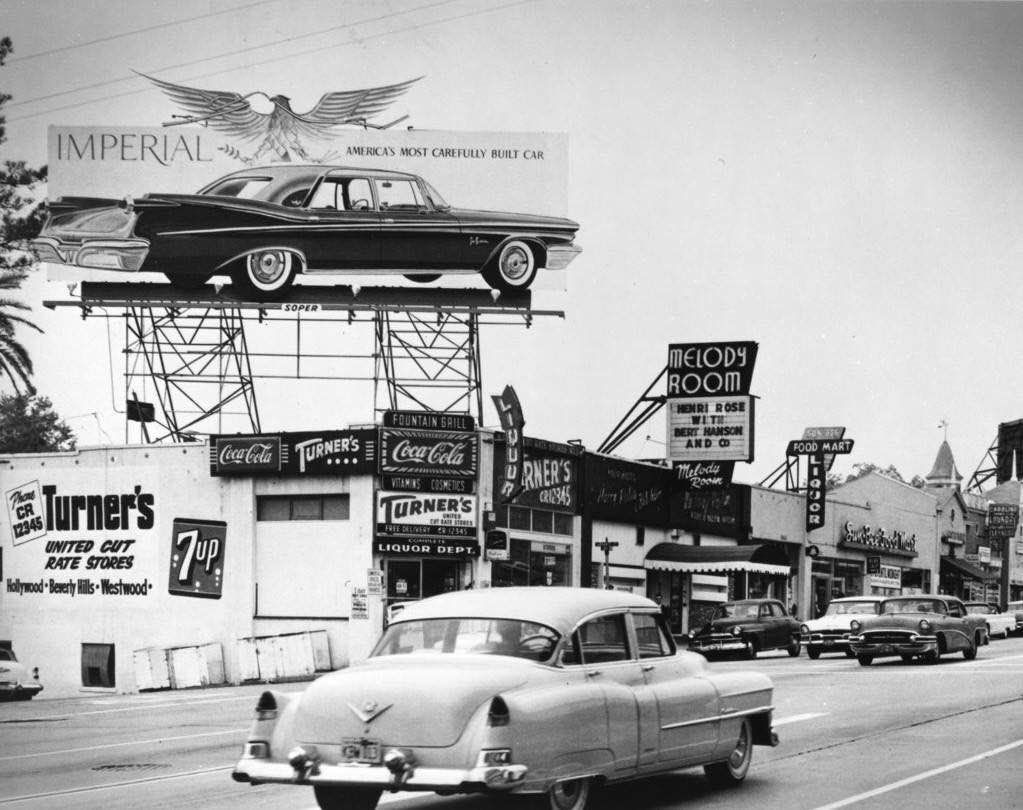The History (and Future) of the Sunset Strip’s Viper Room
From grocery store to cabaret to rock club, the Viper Room is a historic fixture of the Sunset Strip.
 By Chris Epting
By Chris EptingNovember 13, 2023 — 4 Minute Read
When actor Johnny Depp launched The Viper Room in 1993, it automatically became one of the hottest places on the Sunset Strip. But few people realize just how historic its location at 8852 Sunset really is. Dating back to 1921, it’s one of the oldest buildings on The Strip—and it didn’t start out as a club.
Here’s a brief history—and future—of this iconic Sunset Boulevard venue.
Groceries and Gangsters
For the first 20 or so years, the building was actually a small grocery store that served the neighborhood residents working down the hill in a small industrial village called Sherman. By the 1940s, however, Sunset Boulevard had transformed from a dusty and unpaved commuter route into the “Sunset Strip,” where celebrities enjoyed eating, drinking and gambling. (Rumor has it that the Las Vegas Strip was originally named after the Sunset Strip.)
And so the grocery store closed down and was replaced in the mid-1940s with a nightclub called the Cotton Club. Despite advertising itself as “Harlem in Hollywood,” it was not associated with the famous Cotton Club in Harlem. In the late 1940s it became the Greenwich Village Inn, then the Rue Angel, then the strip club Last Call in 1950, perhaps forecasting the rock ’n’ roll debauchery that would ultimately find its way to the Viper Room.
From 1951 to 1969 the building served as a cabaret, the Melody Room, run by brothers Pete and Billy Snyder. For 18 years, the Melody Room was known for its diverse lineup of performers, along with the wide array of gangsters who hung out there.

Rock ‘N’ Roll Royalty
The spot became rock club Filthy McNasty’s from 1973 to 1980 before becoming a different club known as Central. As Los Angeles magazine documented in 2014, “During the 1980s you could easily catch a set by Rickie Lee Jones or bump into John Belushi at The Central. In 1981, The Who’s John Entwistle participated in an open jam night there on Tuesdays. Mitch Mitchell (of the Jimi Hendrix Experience), Buddy Miles, Les Dudek, Carlos Castaneda, Jr., C.C. DeVille (before he was in Poison) Pearl (Janis Joplin’s back-up singer) and Ray Gange (the Clash’s roadie and star of “Rude Boy”) would sit in or be seen drinking at the bar. The Central had a stage that was four feet high, nice monitors, and a great PA system.”
Finally, in 1993, Depp and actor Sal Jenco opened The Viper Room (Depp would later sell his share of the club in 2004). At Depp’s request, Tom Petty and the Heartbreakers performed on the club’s opening night. The Viper Room became a magnet for both well-established artists and up-and-comers, including Johnny Cash, The Strokes and The Pussycat Dolls—and it continues to host live rock bands today. Many production companies have used the Viper Room as a film and television location, and despite the high turnover rate of clubs and restaurants in Los Angeles, the Viper Room remains a must-visit venue for both tourists and locals alike.
The Future of the Viper Room
In July 2018, developers purchased the property between Larabee and San Vicente that is currently home to the Viper Room, raising questions about the venue’s future. Preliminary plans for the site’s redesign, which included an ultra-modern, 15-story building, received pushback from residents and activists concerned about losing the historic property from the fabric of Sunset Boulevard. The project has since been scaled back to a 12-story building that would include a five-star boutique hotel, residences, multiple restaurants and a new, larger space for the Viper Room.
Though the exact future of 8852 Sunset remains unseen, for now, you can still catch live rock shows every weekend and some weekdays at the Viper Room.
If You Go…
The Viper Room
8852 Sunset Blvd., West Hollywood, CA 90069
Hear from Viper Room General Manager Tommy Black, whose connections to the club stretch back to his days as a touring musician in the 1990s.
Updated from the original article by Chris Epting.

About Chris Epting
Chris Epting is the author of 30 travel/history books, including James Dean Died Here (Santa Monica Press), Roadside Baseball (McGraw Hill), Hello It's Me, Dispatches From a Pop Culture Junkie (Santa Monica Press) and many others. He is also an award-winning travel writer and has contributed articles for such publications as the Los Angeles Times, Westways and Travel + Lesiure magazine, among other publications. In addition, Chris is a veteran music journalist and recently co-wrote Def Leppard's Phil Collen's memoir, Adrenalized, and the John Oates Memoir Change of Seasons. Originally from New York, Chris now lives in Huntington Beach, California with his wife and their two children.View All Content
